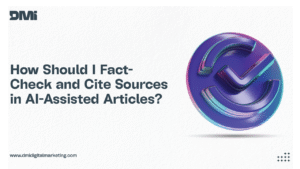Jump to Section
ToggleWhen people search online, what makes them click? Your brand name or a general keyword?
Both branded and non-branded keywords help businesses get found, but which one gives you the best shot at ranking higher? Understanding the difference can make all the difference in your SEO strategy. Let’s take a closer look at how these two types of keywords impact visibility, conversions, and overall SEO performance.
What are Branded SEO Keywords?
Branded SEO keywords refer to search terms that include your brand name, trademark, or its variation. It’s a unique product or service name. For example, we have the “Apple Smart Watch” and “Nike Shoes”, the brand name of this product distinguishes this keyword from all other brands in the same line of business. When a user searches for ‘branded SEO keywords’, it means they are already familiar with that brand, and this brand has built some level of trust with their audience. Hence, it’s known as a high-intent keyword. Branded keywords are often searched by users who already have some level of familiarity and trust in the brand. These users are typically further along in the sales funnel, meaning they are more likely to convert into paying customers.
Examples of Branded Keywords:
- “Tesla Model S specs”
- “Coca-Cola sugar-free vs. regular”
- “Microsoft Office alternatives”
- “Samsung Galaxy S23 Ultra review”
Pros Branded Keywords
1. Lower Competition
Unlike non-branded keywords, branded keywords naturally have lower competition around them because they are more specific. A branded keyword makes it easier for a brand to rank for its own name, as search engines recognize the direct association between the query and the brand’s online presence.
For example, if a user searches for “Nike Air Max 270”, the search engine is more likely to display Nike’s official website, its authorized retailers, and product-related content from Nike itself rather than unrelated competitors. This exclusivity gives brands a competitive advantage in search rankings.
Additionally, branded keywords tend to have a higher click-through rate (CTR) since users searching for them already have an intent to interact with the brand, whether to learn more, make a purchase, or find specific information.
2. High Conversion Rates: Why Branded Keywords Drive More Sales.
Users who search for branded keywords are most likely to convert because they are already familiar with the brand and, more often, have a higher chance of making a purchase intent. Unlike generic searches, where users might still be researching options, branded searches indicate a deeper level of trust and familiarity with the company, leading to a higher probability of making a purchase, signing up for a service, or engaging with the brand.
For example, a user searching for “Apple MacBook Air M2 price” is more likely to buy than someone searching for “best lightweight laptop 2024” because the branded query signals that the user has already made a decision or is close to finalizing their purchase.
3. Reduced (CPC) Cost Per Click: Why Branded Keywords Cost Less in PPC.
Using branded keywords can significantly lower your advertising costs if you’re running pay-per-click (PPC) campaigns. Search engines like Google Ads and Bing Ads typically charge lower CPCs for branded keywords because they are highly relevant, experience higher click-through rates (CTR), and face less competition compared to generic or non-branded keywords. For example, if Nike bids on the keyword “Nike running shoes”, Google recognizes that Nike is the most relevant result for this search, rewarding it with a lower CPC than a competitor trying to bid on the same term.
4. Targeted Traffic: How Branded SEO Keywords Drive High-Intent Visitors
A branded SEO keyword helps drive targeted traffic to a website by ranking high on search engine results pages (SERPs). A website with branded keywords will rank for its name, products, and services. Of course, this has to be strategically used on your Company Profile or About Page.
Branded SEO keywords are highly effective in driving targeted traffic because they help businesses rank for searches that already include their brand name. When users search for a company, product, or service by name, they are usually further along the buyer’s journey and more likely to convert.
For example, a company like Tesla will naturally rank high for branded searches like “Tesla Model 3 features” or “Tesla Supercharger locations.” These searches indicate that the user is already interested in Tesla and is looking for more information or making a purchase decision.
Cons of Branded Keywords: Challenges to Consider
While branded SEO keywords offer numerous benefits, businesses need to consider a few potential downsides and challenges in using them effectively. Let’s break down the cons of relying too heavily on branded keywords:
1. Brand Reputation
A brand must have a solid online and offline reputation to leverage branded keywords effectively. That’s not a piece of cake. As such, brands with a low reputation may struggle to benefit from using branded keywords to increase search visibility. For branded keywords to truly help your website rank high, your brand needs to have a solid online and offline reputation. Branded keywords might not bring in the desired traffic or conversions without this.
Brands with a low or negative reputation may struggle to leverage branded keywords effectively. If users have had bad experiences with your brand or if there’s little awareness of it in the market, people may not be searching for your brand by name. In these cases, even if you rank well for your branded terms, the traffic might not convert as easily.
Example: Brand Reputation at Play
Imagine a lesser-known clothing brand called “Trendz Apparel.” Even if it ranks high for the branded keyword “Trendz Apparel jackets,” the search volume might be low because users don’t yet trust or recognize the brand. Conversely, a well-established brand like “Nike” has no problem getting high volumes of traffic for branded keywords like “Nike running shoes,” due to its reputation.
2. Limited Search Volume
Not everyone recognizes your brand (name), and oftentimes, this impacts the search volume for your products and services and, in turn, limits the traffic and visibility of your brand. When people don’t know about your brand, they are more likely to search for generic terms rather than your brand name. For instance, while “Nike” may receive millions of searches per month, a smaller company like “EcoTech” may struggle to get search traffic for its name, resulting in low search volume for “EcoTech shoes” or “EcoTech electronics.”
3. Impact of Limited Search Volume
Limited search volume restricts the overall traffic potential of your website. For businesses that are trying to establish themselves, relying solely on branded keywords might not be the most effective strategy for building traffic.
4. Difficulty ranking for related keywords
Focusing solely on branded keywords can hinder your website’s ranking for related keywords. For example, Mr. A is into what Mr. B is doing, but Mr. A focuses solemnly on leveraging branded keywords on his website. When users search for their products, Mr. B will likely rank more than Mr. A because he uses both branded and non-branded keywords, keeping him at the top and putting Mr. A at a disadvantage. By solely focusing on branded keywords, Mr. A limits his ability to compete for related keywords that could help him expand his audience base. Mr. B’s broader approach targeting both branded and non-branded keywords puts him in a better position to capture both brand-specific traffic and new customers.
What are Non-Branded SEO Keywords?
Non-branded keywords are more generic. Simple: They do not include brand names or their identity. They are rather the general name for a product, service, or topic, not including anything unique to a particular brand. For example, the search term “Travel insurance” is a non-branded keyword. This query will bring out all potential travel insurance agencies in the search results. Thus, ranking these keywords on Google Search results in competition among travel insurance agencies.
Pros of Non-Branded SEO Keywords
1. High Search Volume
Non-branded keywords have a high volume of searches around them, which can boost traffic and visibility if the Google algorithm favors your website usage. When users search for generic terms related to your products or services, they are often looking for solutions or information, giving your website the potential to appear in the search results and attract large amounts of organic traffic.
The main advantage of targeting high-volume non-branded keywords is that they reach users who may not yet be familiar with your brand. These users are typically still in the discovery phase of their buying journey. By ranking for these terms, your business can introduce itself to a broader audience and increase the likelihood of turning visitors into customers.
Furthermore, ranking for non-branded keywords can enhance your website’s overall visibility across multiple search queries, helping your brand appear in diverse areas of search engine results pages (SERPs). This visibility is crucial for building brand awareness, especially for new or smaller businesses that are still in the process of establishing themselves in a competitive market.
Example:
Imagine you sell running shoes. Non-branded keywords like “best running shoes for women” or “affordable running shoes” will likely get more search volume than specific branded searches such as “Nike running shoes”. Ranking for these non-branded terms means you’re exposed to a larger pool of potential customers, many of whom may not yet be familiar with your specific brand, but are seeking products in your category.
Moreover, search volume is crucial when creating SEO strategies. Ranking for high-volume non-branded keywords provides an opportunity to scale your website traffic rapidly, especially if your content strategy is tailored to answer the common queries that people in your industry search for. If your content is designed to satisfy these high-traffic search terms, it can drive consistent, long-term organic traffic to your site.
2. Increased Visibility
Non-branded SEO keywords will attract new customers when you use them properly. Because of the high search volume around it, it favours website owners in increasing their site visibility. Unlike branded keywords, which are typically searched by people already familiar with your brand, non-branded keywords are more general in nature and capture users who are still in the research phase of their purchasing journey. This makes them a great tool for attracting new customers who may not have encountered your brand before.
Non-branded keywords are essential because they allow you to position your website in front of a wider demographic. Since they don’t focus on specific brands, users searching for these terms are typically looking for a solution or an answer to a question. This gives your business the chance to present itself as a potential solution—whether through product listings, blogs, or informative landing pages.
By ranking for non-branded keywords, your website has a much higher chance of appearing on the first page of search engine results pages (SERPs), where most users tend to click. This increased visibility can be highly beneficial in driving new traffic, especially if you are just starting out or if your brand is not yet well-known in the industry. It’s also a great way to expand your reach beyond your current customer base and tap into new market segments.
How It Works:
When a user searches for a generic term such as “best budget smartphones” or “how to improve website SEO”, they are not looking for a specific brand but rather a solution to a general need. By optimizing your website for non-branded keywords related to your industry or services, you are casting a wider net to attract users who are actively searching for answers or products but haven’t yet decided on a brand.
If you sell budget smartphones, ranking for terms like “best budget smartphones” rather than a specific brand like “Samsung Galaxy S21” will help your website appear in front of users who might not be aware of your brand but are seeking affordable options. This increases the chance of them clicking on your website and, eventually, becoming a customer.
The higher the volume of searches for a specific non-branded keyword, the greater your potential for exposure. If you rank well for high-volume terms that are relevant to your business, your site’s visibility will skyrocket, bringing in more visitors who are interested in what you offer. This not only expands your audience but also positions your brand as a credible and reliable source in the industry.
3. Minimal Dependence on Brand Reputation
Non-branded keywords are not dependent on your brand reputation, making it easier for you to attract a new customer. One of the significant benefits of using non-branded keywords is that they allow your website to attract new customers without relying on an established brand reputation. Unlike branded keywords, which typically depend on the public’s prior knowledge or perception of your brand, non-branded keywords are more generic and don’t require your business to be well-known to perform well in search engine results. This opens up valuable opportunities for new customer acquisition, even if your brand is still building recognition in the market.
How Non-Branded Keywords Work Without Brand Reputation:
When you use non-branded keywords, you’re essentially targeting broader, more general search queries that don’t rely on your brand name. Instead of focusing on specific products or services tied to your brand, non-branded keywords are about the product category or the need that your offering addresses. For instance, instead of targeting “Apple iPhone”, which relies on users already familiar with the Apple brand, you could target terms like “best smartphones under $500” or “affordable phones for students”, which are more generic and not dependent on any particular brand reputation.
When people search for non-branded keywords, they are not necessarily aware of or looking for your specific brand. Instead, they’re looking for a solution to a problem or a general product/service that fits their needs. This gives you the chance to showcase your offerings to a broader audience who might not yet have heard of your brand. It’s an opportunity to make a first impression and engage with potential customers who would otherwise be excluded if you only focused on branded terms.
Cons
1. Higher competition
One of the biggest challenges of using non-branded keywords is the high level of competition that comes with them. Because these keywords are generic and widely used across various industries, ranking for them on search engines is no easy feat. Many big and small brands are targeting the same terms, making it difficult to stand out unless you have a well-thought-out strategy.
Why Non-Branded Keywords Are Highly Competitive
- Broad Appeal, High Demand: Non-branded keywords often have a high search volume, which means many businesses want to rank for them. The more companies that are trying to rank for a keyword, the harder it becomes to secure a top position in search results.
- Big Brands Dominate: Established brands with strong domain authority, years of SEO experience, and larger marketing budgets usually rank higher for generic terms. If a small or new business tries to compete with them head-on, it might struggle to break into the top search results.
- More Effort, More Resources: Because of the high competition, ranking for non-branded keywords requires more effort, from creating top-notch content to running paid ads and building backlinks. If a business doesn’t have the resources to optimize and promote its content continuously, it might find itself buried under the competition.
- More Challenging to Rank: A Hurdle for Small and New Businesses: This will significantly impact either directly or indirectly small or new business owners because they are just coming up, and search engines are still finding ways to understand their content. Ranking for non-branded keywords can be particularly difficult for small or new businesses. Since these businesses are just starting out, search engines have little to no data on their content, making it harder for them to gain visibility in search results.
Why Ranking is More Challenging for New Businesses
- Lower Domain Authority: Established brands have been around for a long time, accumulating backlinks, trust, and credibility with search engines. New websites, on the other hand, lack this authority, making it difficult to compete with well-known brands for top-ranking positions.
- Limited Content & SEO History: Search engines prioritize websites that have consistent, high-quality content and a history of optimized SEO practices. Small businesses may still be in the process of building their content library and SEO strategy, making ranking for non-branded keywords more time-consuming.
- Fierce Competition: Because non-branded keywords appeal to a broad audience, big brands and well-funded competitors already dominate the search results. Smaller businesses with fewer resources often struggle to break through the noise and reach their target audience.
- Search Engine Indexing Takes Time: When a website is new, search engines take time to crawl and index its pages. If a business is starting out, its content may not rank well immediately, even if it is valuable and relevant.
2. Less Brand Awareness: A Challenge with Non-Branded Keywords
Non-branded keywords may not directly contribute to brand awareness as users may not be searching or interested in the brand. One of the key drawbacks of relying solely on non-branded keywords is that they do not directly contribute to a business’s brand awareness. Since these keywords focus on generic products, services, or topics rather than a specific company name, users may engage with the content but never associate it with the brand behind it.
Why Non-Branded Keywords Limit Brand Awareness
- Users Focus on the Product, Not the Brand: When people search for non-branded terms like “best wireless earbuds”, they are exploring options, not necessarily looking for a specific company. This makes it harder for a business to establish a strong brand identity through search results.
- Increased Competition Diminishes Visibility: Since many businesses are competing for the same non-branded keywords, users may come across multiple options before encountering a specific brand. Potential customers may not remember or recognize the company behind the product or service without clear branding efforts.
- No Direct Connection to Brand Loyalty: Brand awareness helps businesses build customer trust and loyalty over time. If people continuously see a brand name in search results, they are more likely to recall it and choose it over competitors. However, this branding opportunity is often lost since non-branded keywords focus on generic industry terms.
- One-Time Visitors Instead of Repeat Customers: Non-branded keyword searches often attract users who are simply looking for quick information or the best deal. Without brand-focused elements like a strong company presence, engaging content, or a unique selling proposition (USP), businesses may struggle to turn these visitors into long-term customers.
Which Will Rank Supreme Between Branded and Non-Branded SEO Keywords?
Branded and non-branded keywords have strengths, weaknesses, and areas where they perform best. Thus, we will examine the conditions that favour each of the keywords.
For branded keywords, it will rank supreme if;
- Your brand is well established, and users are searching for your brand specifically.
- The competition around your keyword is low, i.e., you have a unique brand name or niche attributed to you.
Take DMi, a London- and Abuja-based digital marketing firm, as an example. If it has a loyal customer base that directly searches for “DMi” when they need its services, it will have a competitive edge in search rankings. However, this also means DMi primarily attracts existing customers rather than new ones (unless it also optimizes for non-branded keywords)
For non-branded keywords, it will rank supreme if;
- There is a high search volume around it, and the fact that it makes provision for long-tail keyword usage will make it more attractive for driving traffic.
- The conversion rates are improving by regularly adjusting your website and its content. Your non-branded keywords will likely rank high.
- There is competition around your keyword, which can compete effectively with all other related keywords.
Still using DMi as an example—if a user searches for “Best Digital Marketing Firm”, they aren’t looking for a specific company yet. Instead, they want a list of options. Search engines prioritize websites with relevant content for such queries, rather than those relying solely on branded keywords.
The advantage: These websites will have a higher chance of reaching new and broader audiences. On the other hand, DMi will focus on maintaining its existing consumers (if it doesn’t optimize for non-branded keywords).
Overall, combining branded and non-branded keywords will help you achieve SEO success.
Top 3 Strategies for Using Branded and Non-Branded Keywords
1. Keyword combination
Combining branded and non-branded keywords in your content will help your website rank such that when any user searches for your unique brand name or your products, your content ranks.
2. Uniformity
Across all your platforms, your messages must be consistent, and your website’s tone, writing style, and keywords must be the same. That’s why you should have a dedicated company profile. It helps build a strong identity in that whenever anything about your brand is showcased, a user can quickly identify you without being told.
3. Tracking keyword performance
Track branded and non-branded keyword traffic to see which works and which does not. Furthermore, website owners should be prepared to adjust their keyword strategy based on their performance and audiences’ evolving needs.
Final Thoughts
There is no clear winner in branded and non-branded SEO keywords. Both of the keywords have their strengths and weaknesses. The way to handle this is not choosing between the two but rather optimizing for both in your article and being ready to track, analyze, and adjust your strategies based on your audience preferences.
FAQS
Branded Keywords FAQs
- What are branded keywords?
Branded keywords are search terms that include a company’s name, product, or service, helping to direct users who are already aware of the brand to its website. - Why are branded keywords important for SEO?
Branded keywords have high conversion potential, lower cost-per-click (CPC) in paid ads, and help businesses dominate search engine results for their own name. - Can branded keywords improve website traffic?
Yes, they drive high-intent traffic from users already familiar with the brand, increasing the chances of conversions. - How do I find branded keywords for my business?
You can use tools like Google Search Console, Google Ads Keyword Planner, and SEMrush to identify how users search for your brand online. - Is it necessary to bid on my own branded keywords in PPC?
Yes, bidding on your own branded keywords in pay-per-click (PPC) campaigns helps prevent competitors from ranking above you in paid search results. - Can competitors use my branded keywords in their ads?
Yes, competitors can bid on your branded keywords in Google Ads, but they cannot use your trademarked brand name in their ad copy unless you allow it. - What pages should I optimize for branded keywords?
Your homepage, about page, product/service pages, and company profile should all include branded keywords to ensure search engines associate them with your brand. - Do branded keywords work for a new business?
Branded keywords are more effective for established brands, but new businesses can start using them early to build brand recognition over time. - When to use branded keywords? You are good to go when your company/organization has built a solid brand reputation and trust within your audiences.
- How do I know which SEO keywords to use? Track your website’s performance and analyze which keywords generate the most traffic. Keyword research tools like Google Keyword Planner or SEMrush can be used to identify high-performing terms.
- What is an example of a branded keyword? Branded keywords have something unique to a brand, name, or trademark to a product or service. A branded keyword includes the company or product name, such as Example: “Apple Smart Watch” or “Nike Air Max”.
- Which keyword is best for SEO? When it comes to choosing keywords, combining both is a winning strategy.
- Should I bid on my branded keywords in PPC campaigns? Yes, bidding on your own branded keywords in PPC ensures that competitors do not outrank you for your own brand name, and it often results in a lower cost per click (CPC).
Non-Branded Keywords FAQs
- What does non-branded mean? Non-branded keywords refer to those keywords with their general name with nothing unique or peculiar to a brand. Non-branded keywords are general terms that do not include any brand name. They are used by people searching for products or services without a specific brand in mind.
- What is an example of a non-branded keyword? An example of a non-branded keyword is searching for “Teddy Bears” on search engines without adding anything peculiar to a brand. A non-branded keyword would be “running shoes”, whereas a branded keyword would be “Nike running shoes”.
- How do I rank higher for non-branded keywords? To rank higher for non-branded keywords, focus on creating high-quality content, optimizing on-page SEO elements, and building strong backlinks to increase domain authority.
References
https://neilpatel.com/blog/nonbrand-vs-brand/
https://www.semrush.com/blog/branded-vs-non-branded-keywords/
https://www.semrush.com/kb/819-branded-vs-non-branded-keywords
Author
-

Yusuf Mutiat Temitope is a result-driven content writer with years of experience in conversion-driven content writing. Mutiat writes on digital marketing to drive business growth, provide insights on trending topics for the audience, and increase customer engagement.
View all posts SEO Content Writer






